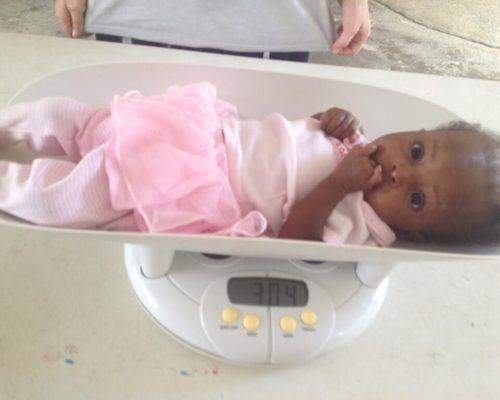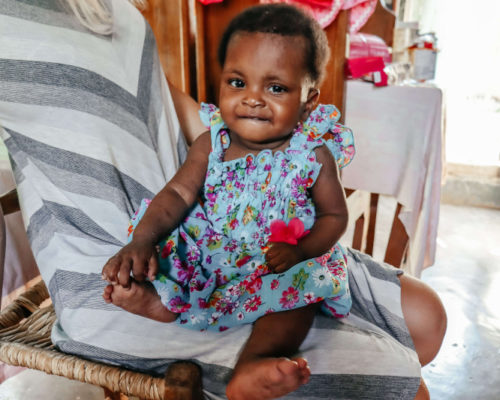The Need


6 months to 13 months
Our program was designed because we saw a need: babies without a mother. Haiti has one of the highest mother mortality rates in the Western Hemisphere. 480 out of every 100,000 mothers will die in childbirth. For comparison, the rate in Australia is 6 out of 100,000 mothers and 19 out of 100,000 in the United States. Women in Haiti are 25 times more likely to die in childbirth than women in the United States[1].
When a mother dies, there aren’t a lot of options for the baby. Families depend on the mother’s ability to breastfeed. However, when that is taken from them, they often struggle to provide for the baby. They can buy formula in Haiti, but it often costs about $15USD for an eight ounce can. That price might be pretty standard in the United States, but when they are living on less than $2 a day, they can’t afford a $15 can of formula.
In May 2019, a little girl named Jezila (which translates to Jesus is here) died in a hospital in rural Haiti. She was 11 months old. Her mother died a few days after she was born. Her grandmother tried to take care of her, but she could not afford formula. For the 11 months of her life, Jezila survived off of rice water. Her little body eventually gave out and malnutrition won the battle. Jezila is one of the reasons why we have created this program. None of the families in this program take the gift of formula for granted. For them, it is a lifesaver for their baby.
There is another option for families when the mother dies, which is to put the baby in an orphanage. This option is a huge problem around the world. These children are called “poverty orphans.” In Haiti alone, there are nearly 1,000 orphanages. However, it is estimated that 80% of the orphans living in them are not true orphans. They have at least one living parent, if not two. At The Potter’s Family, we believe that, whenever possible, a child should be raised within a family unit. Our goal is to help empower families so they can raise their children. No family should have to put their child in an orphanage because they cannot provide for their basic needs.
[1] https://data.worldbank.org/indicator/SH.STA.MMRT?locations=HT